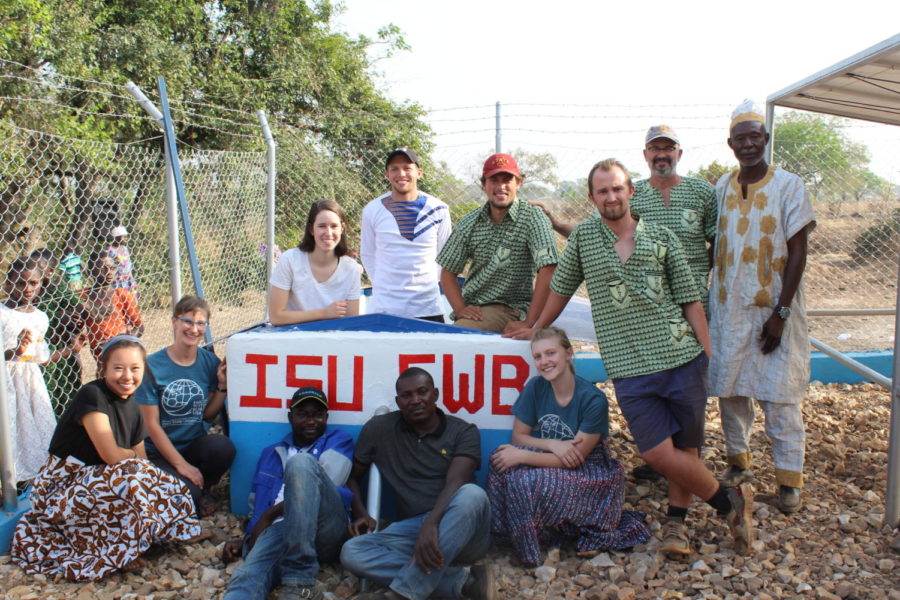Engineers at Iowa State work together to help West African families
Engineers Without Borders is creating a project to assist women in Ghana on the coast of West Africa by helping with income for shea nut harvesters.
March 12, 2020
Iowa State’s chapter of Engineers Without Borders has decided to dedicate its next three years to projects that improve the lives of people living in the small villages of Ghana called Ullos. Ghana is a West African country where many of the people are extremely impoverished.
One of the students’ projects is focused on generating more income for the shea nut harvesters. In the Ullos, women are responsible for harvesting, processing and selling shea nuts, while the men typically tend the fields during the harvesting season.
These women make approximately 800 cedis, the Ghanaian currency, in a year, which is the equivalent to $142 in the United States. By implementing systematic changes, the Ullo-Shea team believes it is possible for the women to earn 19,430 cedis per year, which is equal to $3,469 and would represent a growth of 2,300 percent.
“Shea nuts are their cash crop,” said Reed Duncan, sophomore in pre-business and project director of the chapter. “This is how they make enough money to send their children to school and buy their food during the year.”
The shea nuts are harvested from vitellaria trees, which are native to Africa and grow naturally all across the Ullos. Shea nuts are comprised of a hard shell, fruit and seed. Typically, the shell and the fruit are discarded, and the seed, which is very oil-rich, is processed into shea butter. Shea butter is a very common ingredient in many cosmetic products and lotions found all over the world.
“They don’t eat the fruit, and they throw away the shell,” said Haley Johnson, senior in chemical engineering and student member of the Ullo-Shea team. “They use mortars and pestles to grind up the seed and add oil to make shea butter.”
The Ullo women earn such a small income as a result of many different issues with the current system. For starters, once the shea nuts are harvested, they are stored in a large pile on the floor of a classroom, leaving them vulnerable to mold and insects.
The nuts are dried and processed, and once the shea butter is ready to be sold, middlemen take advantage of the high supply and offer 5 percent of the product’s value to be resold in larger villages for a large profit.
“Right now, they are just selling them right away, and they are not making enough money for it,” Duncan said. “On top of that, the storage is not good enough. They are losing a lot of the nuts to mold, insects and rot.”
The Ullo-Shea team has a plan to change the system from the bottom up. They plan to provide storage bags to help keep the insects away. They are building drying racks to dry the nuts faster and more thoroughly. They are designing a streamlined processing machine that shells, grinds and roasts the shea nuts all in one motion.
Finally, they plan on providing a means of transportation so the Ullo women can sell their product in the larger villages, bypassing the middlemen and receiving a larger portion of the profit.
To achieve these goals, the Ullo-Shea team will be seeking sponsors and hosting fundraising events. Currently, they are in the planning stage for the fundraising, but they hope to gain the support of companies like John Deere and others who are typically active in their communities.
Starting March 30, Engineers Without Borders will be hosting a chapter-wide fundraising campaign on Fund ISU, Iowa State’s homepage for club donations.

















